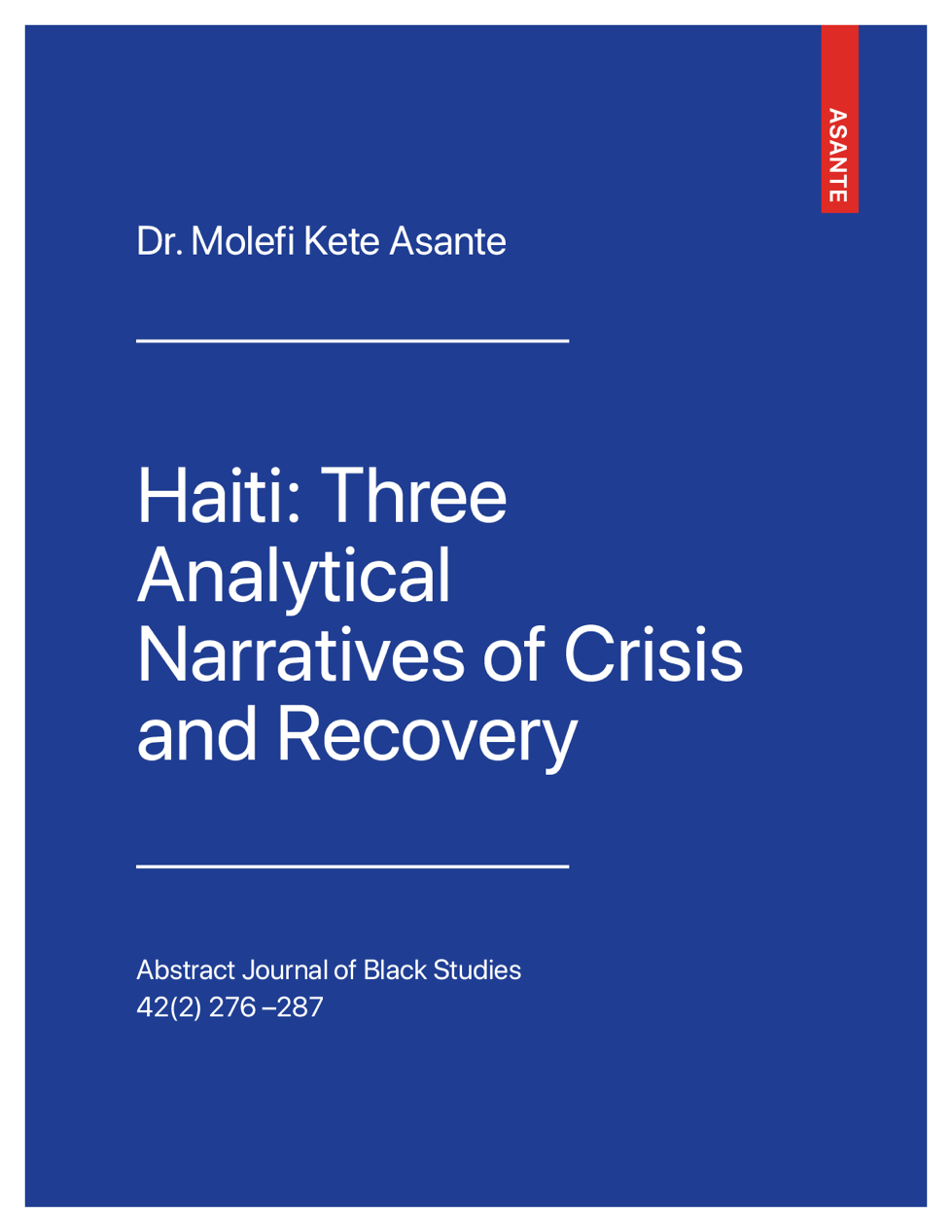Haiti: Three Analytical Narratives of Crisis and Recovery
by Molefi Kete Asante
Journal of Black Studies, Vol. 42, No. 2, The Haiti Earthquake of 2010: The Politics of a Natural Disaster (MARCH 2011), pp. 276-287
Abstract
Perhaps no other revolution in modern times, whether American, French, Russian, or Algerian, has stirred such different emotions and raised so many theories of the act itself as the Haitian Revolution. This essay is framed around the given and received interpretations of Haiti's long history in order to demonstrate that there is neither curse nor punishment in Haiti's history; there is only intrigue, interest, and interference. The natural disasters whether earthquakes or hurricanes do not occur because of some rational targeting of the country but are the results of the arbitrariness of nature. Of course, how Haiti has dealt with these natural disasters can be interpreted from positions of class narrative, religious narrative, and cultural narrative.
You might also be interested in:
The History of Africa
Being Human Being
100 Greatest African Americans



